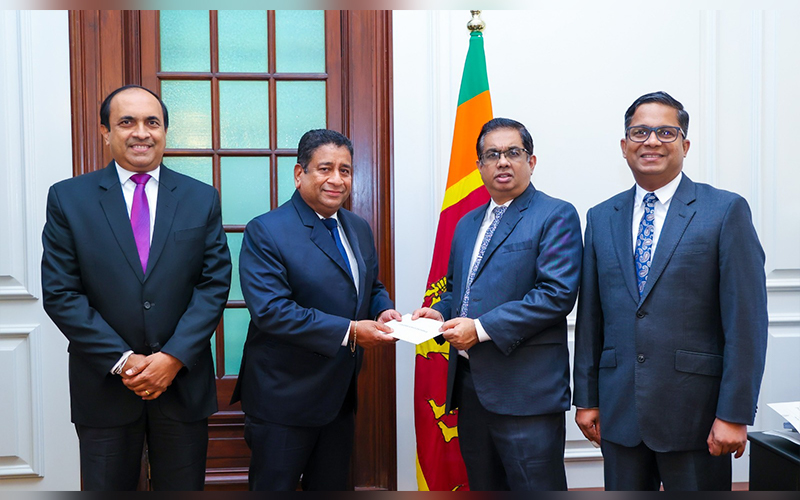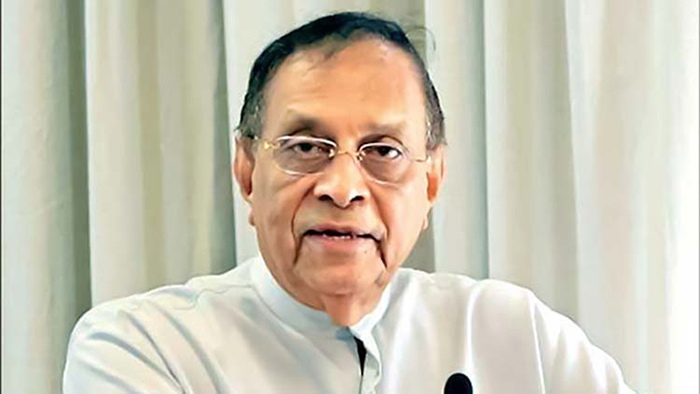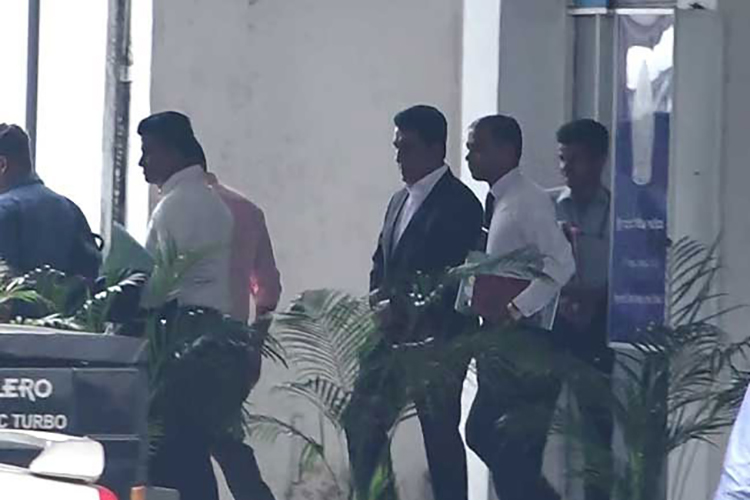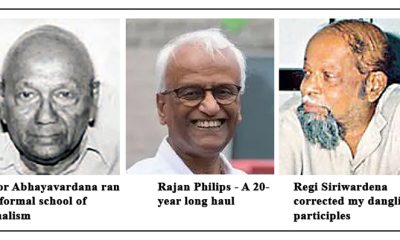News
Govt. under fire over itsdecision to abolish PUCSL

‘Corrupt elements behind the move’
By Rathindra Kuruwita and Ifham Nizam
Consumer rights groups and opposition lawmakers yesterday alleged that the CEB and some power producers had engineered the disbanding of the Public Utilities Commission of Sri Lanka (PUCSL), and the government’s decision to close down the PUCSL would pave the way for backdoor power project deals, which would send electricity prices through the roof. They vowed to take legal action if the government went ahead with its decision to abolish the PUCSL.
In a letter dated 10 December 2020, Dr. P. B. Jayasundara, Secretary to the President, has instructed S. R. Attygalle, Secretary to the Treasury, to take steps to close down the PUCSL and to adsorb its technical staff to the Department of National Planning, Ministry of Power and to the Treasury.
The letter says the decision was taken in line with the budget proposal referring to the PUCSL and the CEB to create an efficient work environment to implement power generation plans that have remained unimplemented for years.
The letter says, “As tariff and connected regulatory work is within the government purview, certain relevant provisions in the PUCSL Act could be incorporated in Consumer Affairs Authority and CEB act when PUCSL Act is replaced in due course.”
Commenting on the move, Ranjith Vithanage, President of the Movement for the protection of consumer rights said that the PUCSL was the only place where consumers could seek solutions to their power related problems.
Vithanage said: “Actually we wanted the scope and operations of the PUCSL expanded to regulate water and lubricants as well. But the government is trying to do away with this independent institution. Certain people didn’t like the PUCSL because the PUCSL prevented questionable power deals. There is a move to start power plants violating environmental and procurement process and to increase electricity tariffs. If anything happens to the PUCSL, we as a union will take legal action and take to the streets.”
Sanjeewa Dhammika, Convenor of the Electricity Users Association said that the current administration was attempting complete what the yahapalanaya government had started. He said that the then Prime Minister Ranil Wickremesinghe and minister of Power Ranjith Siyambalapitiya had attempted to get rid of the PUCSL a few years back. He added that the PUCSL had attempted to stop illegal power purchases the CEB made from power plants owned by powerful businessmen and that could be the reason for the government move.
The CEB Engineers Union (CEBEU), which has been at loggerheads with the PUCSL for years, said it was not in support of scrapping the PUCSL. Saumya Kumarawadu, President of CEBEU said that a regulator was essential for the power sector.
“We don’t know if the government will really go ahead with this. We had issues with the current officials of the PUCSL, but we have always insisted that a regulator is needed. In fact, we asked for a regulator a long time ago. We had problems with this PUCSL, but what is needed is a good team. The government just haven’t appoint a competent team. We will decide what to do if the government actually goes ahead with its decision.”
SJB MP Harsha de Silva told The Island that he was shocked by the development and that the CEB and connected private energy producers had got the President to shut down the PUCSL. “This will open doors to massive corruption.”
Jayanath Herath, Director Information at PUCSL, contacted for comment, said they had not been informed of the government decision officially.
News
Colombo Stock Exchange (GL 12) donates LKR 25 million to the “Rebuilding Sri Lanka” Fund

The Colombo Stock Exchange (GL 12) has contributed LKR 25 million to the Rebuilding Sri Lanka Fund.
The cheque was handed over to the Secretary to the President Dr. Nandika Sanath Kumanayake by the Chairman of the Colombo Stock Exchange, Dimuthu Abeyesekera, the Chief Executive Officer Rajeeva Bandaranaike and Senior Vice Chairman Kusal Nissanka at the Presidential Secretariat.
News
Karu argues against scrapping MPs’ pension as many less fortunate members entered Parliament after ’56

Former Speaker of Parliament Karu Jayasuriya has written to President Anura Kumara Dissanayake expressing concerns over the proposed abolition of MPs’ pensions.The letter was sent in his capacity as Patron of the Former Parliamentarians’ Caucus.
In his letter, Jayasuriya noted that at the time of Sri Lanka’s independence, political participation was largely limited to an educated, affluent land-owning elite. However, he said a significant social transformation took place after 1956, enabling ordinary citizens to enter politics.
He warned that under current conditions, removing parliamentary pensions would effectively confine politics to the wealthy, business interests, individuals engaged in illicit income-generating activities, and well-funded political parties. Such a move, he said, would discourage honest social workers and individuals of modest means from entering public life.
Jayasuriya also pointed out that while a small number of former MPs, including himself, use their pensions for social and charitable purposes, the majority rely on the pension as a primary source of income.
He urged the President to give due consideration to the matter and take appropriate action, particularly as the government prepares to draft a new constitution.The Bill seeking to abolish pensions for Members of Parliament was presented to Parliament on 07 January by Minister of Justice and National Integration Dr. Harshana Nanayakkara.
News
Johnston, two sons and two others further remanded over alleged misuse of vehicle

Five suspects, including former Minister Johnston Fernando and his two sons, who were arrested by the Financial Crimes Investigation Division (FCID), were further remanded until 30 January by the Wattala Magistrate’s Court yesterday.
The former Minister’s , sons Johan Fernando and Jerome Kenneth Fernando, and two others, were arrested in connection with the alleged misuse of a Sathosa vehicle during Fernando’s tenure as Minister.
Investigations are currently underway into the alleged misuse of state property, including a lorry belonging to Lanka Sathosa, which reportedly caused a significant financial loss to the state.
In connection with the same incident, Indika Ratnamalala, who served as the Transport Manager of Sathosa during
Fernando’s tenure as Minister of Co-operatives and Internal Trade, was arrested on 04 January.
After being produced before the Wattala Magistrate’s Court, he was ordered to be remanded in custody until 09 January.The former Sathosa Transport Manager was remanded on charges of falsifying documents.
-

 Editorial7 days ago
Editorial7 days agoIllusory rule of law
-

 Features7 days ago
Features7 days agoDaydreams on a winter’s day
-

 Features7 days ago
Features7 days agoSurprise move of both the Minister and myself from Agriculture to Education
-

 Features6 days ago
Features6 days agoExtended mind thesis:A Buddhist perspective
-

 Features7 days ago
Features7 days agoThe Story of Furniture in Sri Lanka
-

 Opinion5 days ago
Opinion5 days agoAmerican rulers’ hatred for Venezuela and its leaders
-

 Features7 days ago
Features7 days agoWriting a Sunday Column for the Island in the Sun
-

 Business3 days ago
Business3 days agoCORALL Conservation Trust Fund – a historic first for SL













